乍一看,你不太能把德高和他九千公里外的故乡——西班牙联系在一起。
For someone so deeply rooted in Chinese culture, it's hard to link Diego Rodriguez immediately to the sun-soaked streets of his European hometown.
因为他讲一口流利的中文,能细数中国美食,时不时蹦出几个中文互联网俚语,随口聊的是北京的古朴、广东的闲适、杭州的诗情画意……
Fluent in Chinese and naturally easygoing, Diego navigates the country's cultural tapestry with ease. He can name everyday delicacies of Chinese cuisine, casually drop internet slang, and observe and discuss the distinct rhythms of life across different Chinese cities.
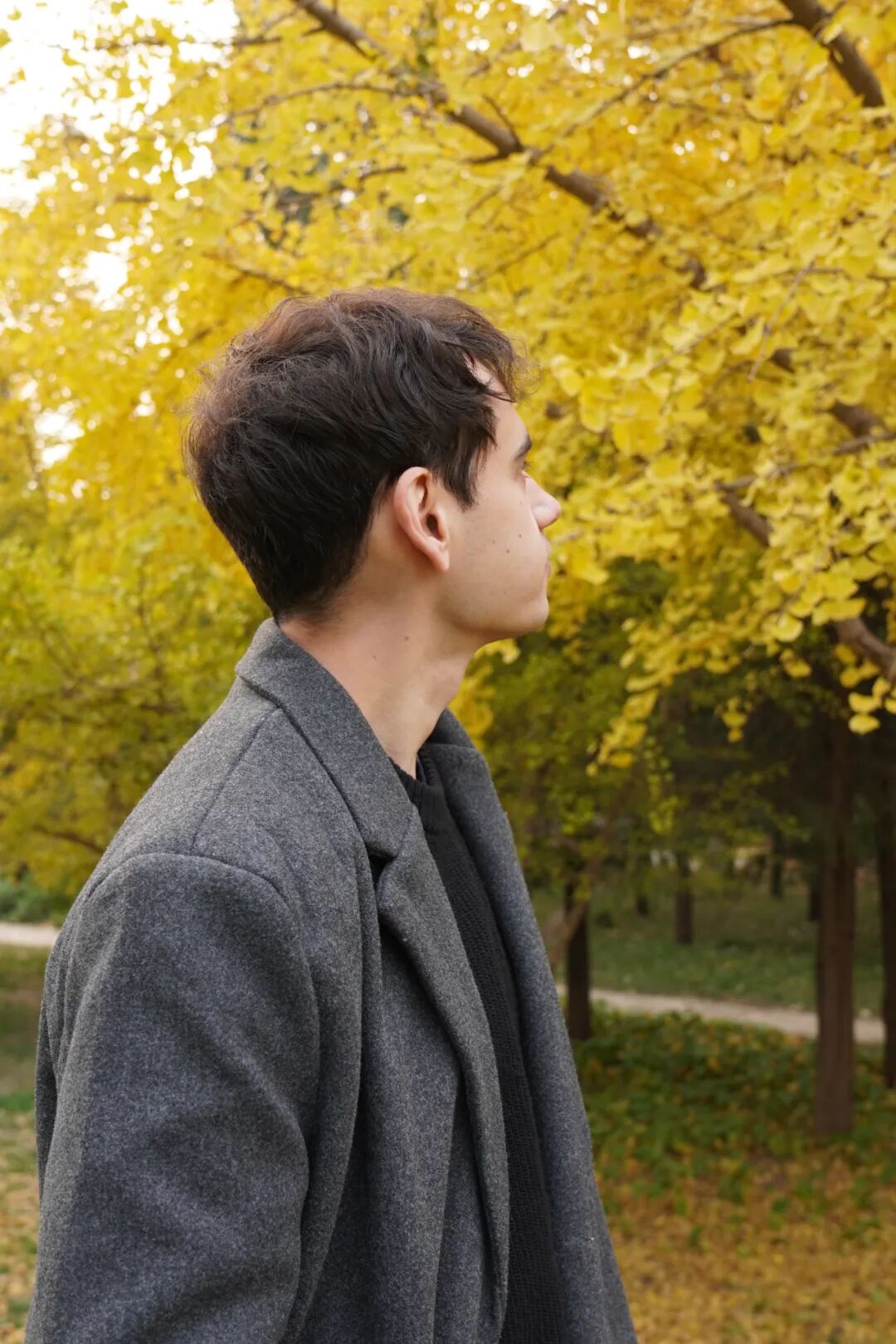
德高在清华大学秀钟书院就读环境工程专业,学业繁忙,节奏紧张。在这个中国的顶尖学府,他直言:“我的成绩在班上只能算中等水平。”
但他不甘落后,所以时常鞭策自己,不断进步——“我觉得得有目标和追求,勤奋努力是我很满足的一种状态。”
你很难从一个惯于享受阳光、沙滩和闲适的西班牙人嘴里听到这样的一句话。但是在德高身上,他似乎兼具了多种文化状态下的性格特质:既相信“天道酬勤”,也善于灵活变通。
Now a student in environmental engineering at Tsinghua University, Diego embraces the philosophy that effort and purpose bring fulfillment — a mindset not often associated with the leisurely lifestyle of his native Spain.
他对着镜头笑,像对老朋友一样分享:“我现在觉得自己更适应中国这边的状态吧,部分是因为我是从11岁的时候就跟着爸妈到广州了。”
“父母欣赏中国人的尊师重道”
德高的故事,始于一对西班牙夫妇决定远渡重洋。
2012年,这对夫妇带着德高和他的弟弟,在完全不会中文、从来没去过中国的情况下,从西班牙马德里附近的一个小镇搬到了正处于高速发展时期的中国广州——那一年德高11岁。
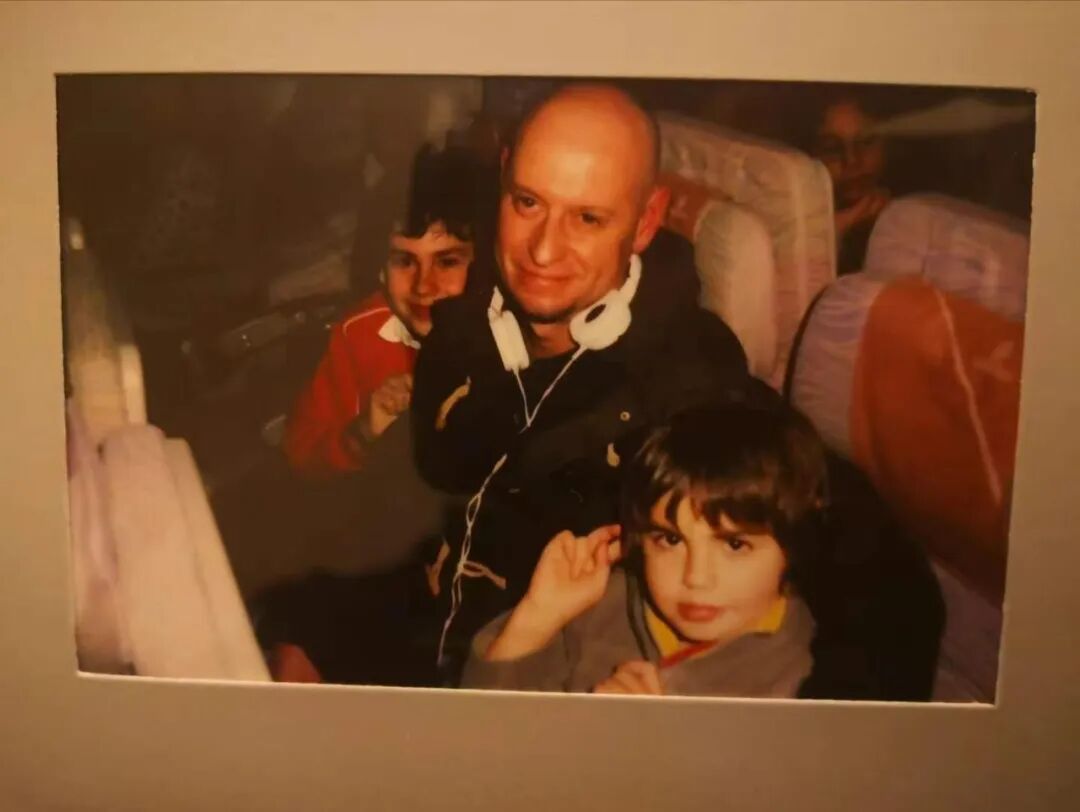
“我爸妈的朋友和亲戚都觉得他们疯了。”德高回忆,“因为他们一点中文都不会,也从来没去过中国,却带着全家去一个完全陌生的国家生活。”
初来乍到的德高对广州的第一印象是“快节奏、大都市”,相较于他们之前居住在马德里附近的小镇,他觉得那个时期的广州似乎更像他心目中现代化都市的模样。
The story began in 2012, when Diego's parents made a decision their friends called crazy: they packed up their life in a small town near Madrid and moved to Guangzhou, China.
"They didn't speak a single word of Chinese," Diego recalls. "Our relatives thought they were out of their minds."
在看似大胆的决定背后,是德高父母的观察。他的父母一直相信,中国的教育体系能为两个孩子提供一个更合适的成长环境,父母更欣赏中国人居安思危、尊师重道、注重基础学科培养的特质。
“我爸一直说,人不能甘于平庸。”德高记得很清楚,“他从来没要求我考多少分,只希望我在进步,在学习。”
But his parents saw something others didn't. They admired the discipline of Chinese education, the respect for teachers, and the focus on foundations.
"My dad always said, 'Never settle for mediocrity,'" Diego remembers. "He didn't care about grades. He just wanted me to keep improving."
这个选择起码令长大后的德高本人满意。如今,他与弟弟都在各自希冀的道路上成长,弟弟在互联网大厂实习,父母时常在朋友圈分享德高和弟弟的生活碎片,这让亲戚朋友不再质疑当初移居中国的决定。
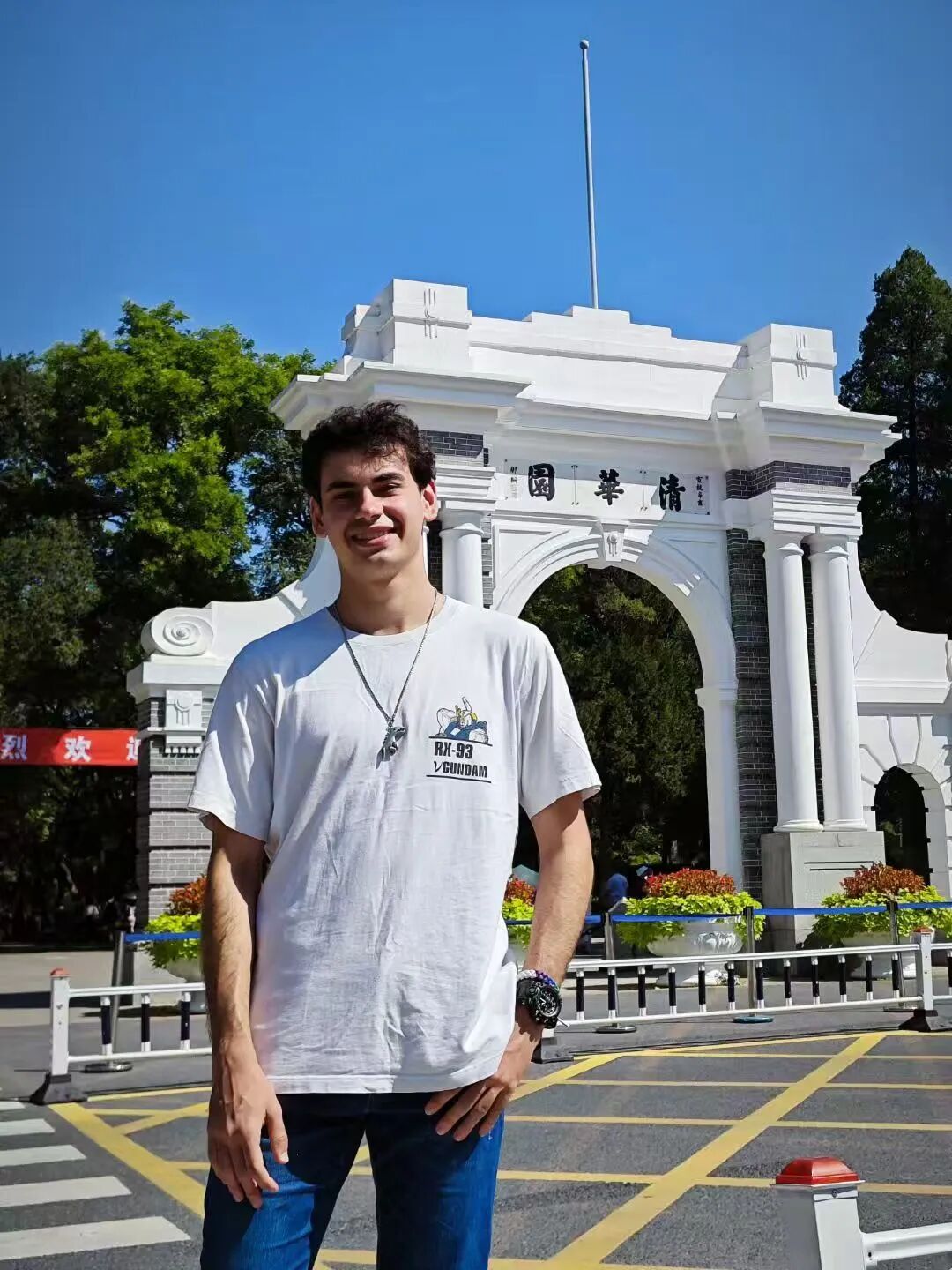
Looking back, Diego is satisfied with how things turned out. Today, he and his younger brother are pursuing their own paths — his brother interning at a major tech company — while their parents frequently share snapshots of their lives online, quieting any lingering doubts relatives once had about the family's move to China.
“很少有地方像中国一样平等、友善”
有这样的结果,并非轻而易举。刚到广州时,德高一句中文也不会,“自己拿着西班牙语词典,说几个词,翻一下词典,说几个词,翻一下词典。”他双手抬高,摆出哭泣的表情,“小时候因为语言不通和同学有了误会,我会急得哇哇大哭,因为很想要表达自己,但又说不了话。”
The journey was far from easy. Upon arriving in Guangzhou, Diego spoke no Chinese. As a child, he relied on a Spanish-Chinese dictionary, carefully sounding out words and flipping pages to communicate. Misunderstandings with classmates were common, and he often cried in frustration, eager to express himself but unable to find the words.
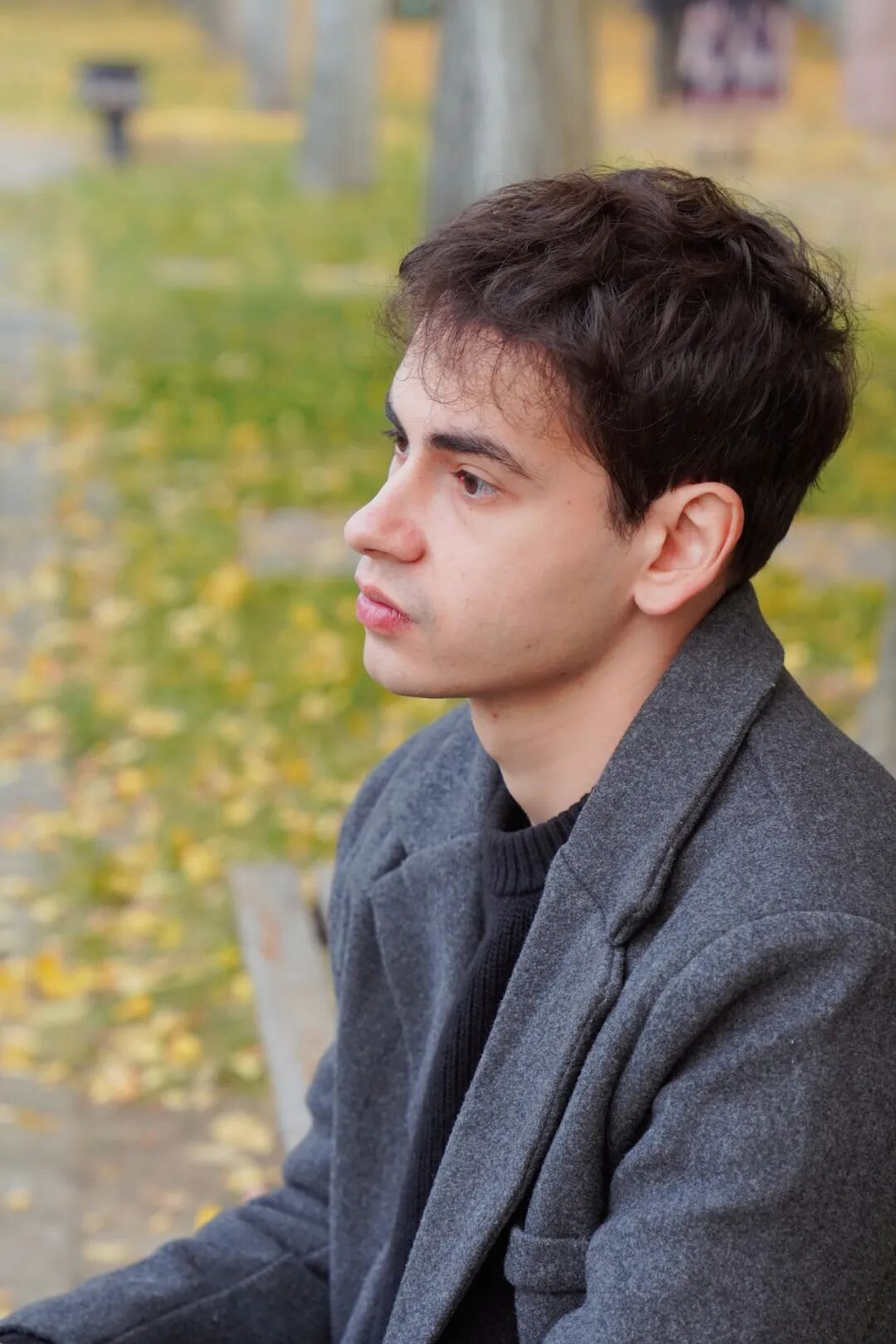
语言障碍并未阻挡友谊的自由生长。“朋友对我来说特别重要。”德高坦言,“我最好的几个朋友都是中国人,其中一位是我在小学时认识的,我们在广州一起长大,如今已经是认识的第13年了。”
“每次回到广州,就像回家一样。”他说,广州不仅是他学习中文的地方,也是他最初认识中国的起点。这种家的感觉,并不仅仅来自熟悉的街道和建筑,更来自人们的接纳和包容。“我去过很多国家,很少有地方能像中国这样平等、善意。人们对差异充满好奇,而不是排斥。”
Yet friendships flourished despite the barrier. Many of his closest friends are Chinese, including one he met in elementary school.
The city of Guangzhou became home not only because of its streets and buildings, but also because of the acceptance and curiosity of its people. "I've been to many countries, but few places are as equitable and kind as China. People are curious about differences rather than rejecting them," Diego said.
在漫长的求学过程中,德高逐渐融入了集体。他经历了和中国孩子一样的学习压力,也参加各种校园活动。在课堂上,大家把他当成同学、朋友,而不是“外国人”。
He experienced the same academic pressures as Chinese students and took part in a variety of campus activities. His peers treated him as a classmate, not as a "foreigner".
“西方人对中国印象比较片面,因为没来过”
这些年,德高几乎走过了中国的全部省份。从内蒙古大草原,到大理洱海,再到川渝的热辣火锅,每一座城市都给他留下了独特的印象。
自从来到中国,德高已经有11年没有回过西班牙了。他说,有时候和同龄的西班牙人交流,会感到有些隔阂,“甚至有时候会觉得自己不像西班牙人了。”与西班牙的亲戚和朋友交流对中国的认知时,也常常会出现一些理解上的冲突。
Over the past 11 years, Diego has traveled extensively across China, from the grasslands of Inner Mongolia to the waters of Dali. Each city and region left its mark, shaping his understanding of the country's diversity and complexity.
Meanwhile, time away from Spain has created a subtle distance from his European roots, with cultural gaps sometimes emerging even in conversations with Spanish relatives.
德高指出,西方人对中国的印象往往比较片面,这种现象在西班牙也很常见。“很多人看到的中国,只是在媒体或者新闻里看到的一些片段,他们没有去过中国,也不了解真正的生活面貌。没有亲身经历,很难理解中国的多样性和复杂性。”
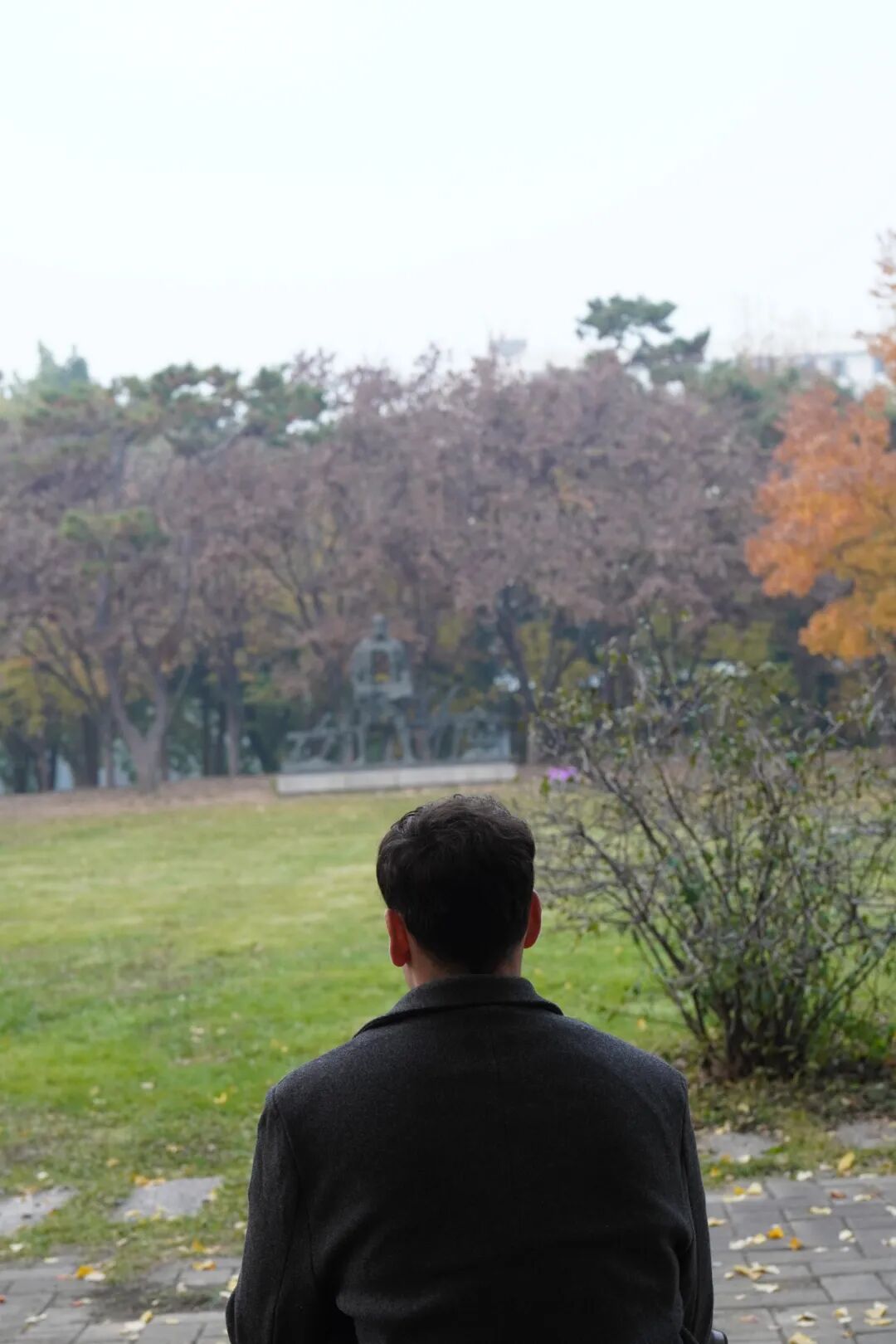
Diego has come to recognize a broader reality: Western perceptions of China are often fragmented, filtered through media snippets rather than lived experiences. True understanding, he notes, comes from immersion and engagement.
无论身处何地,人们总能找到让自己有归属感的地方。当选择在一个地方生活,这份归属感并不完全依赖于所谓的“生活稳定”,而是一种适配当下状态的选择。
“现阶段我想更多地成长,所以会选择在北京,未来有一天,也许我会回广州,或者去杭州——都说不准。”
在中国的许多城市,德高都能体会到“安心”的感觉。“如果要选一个我希望能一辈子生活的地方”,德高顿了顿后说,“我觉得我会选择广东。”
For now, Diego has chosen Beijing to continue his growth, while remaining open to future moves — to Guangzhou, Hangzhou, or elsewhere. Across the cities he has called home, Guangdong stands out as a place that offers both comfort and a sense of enduring belonging.
记者:李涵萌
编辑:左卓
实习生:孙艺菡
本文来自公众微信号:中国日报双语新闻
|
|
 /1
/1 